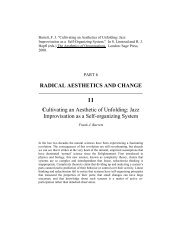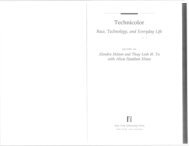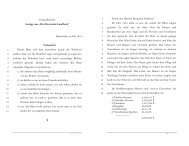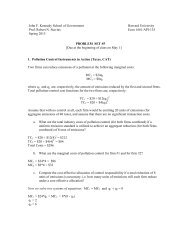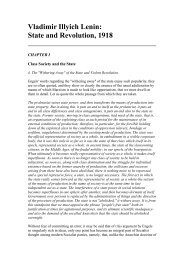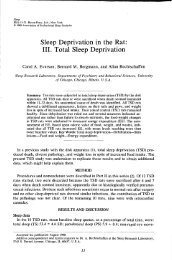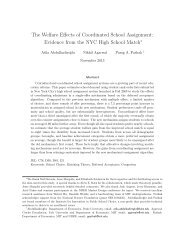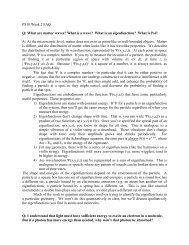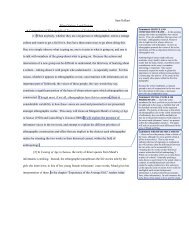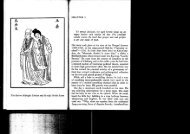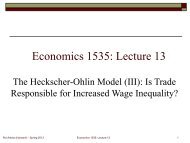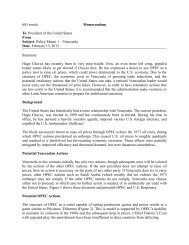CUisis AuthoU(s): ReinhaUt Koselleck and Michaela W ... - iSites
CUisis AuthoU(s): ReinhaUt Koselleck and Michaela W ... - iSites
CUisis AuthoU(s): ReinhaUt Koselleck and Michaela W ... - iSites
You also want an ePaper? Increase the reach of your titles
YUMPU automatically turns print PDFs into web optimized ePapers that Google loves.
<strong>Koselleck</strong> + Crisis<br />
metaphorical expansion into the domain of social <strong>and</strong> political language.<br />
There it is used as a transitional or temporal concept (Verlaufsbegriff),<br />
which, as in a legal trial, leads towards a decision. It indicates that point in<br />
time in which a decision is due but has not yet been rendered.<br />
Since then the concept of crisis assumed a double meaning that has<br />
been preserved in social <strong>and</strong> political language. On the one h<strong>and</strong>, the objec-<br />
tive condition, about the origins of which there may be scientific disagree-<br />
ments, depends on the judgmental criteria used to diagnose that condition.<br />
On the other h<strong>and</strong>, the concept of illness itself presupposes a state of<br />
health-however conceived-that is either to be restored again or which<br />
will, at a specified time, result in death.13<br />
The legal, theological, <strong>and</strong> medical usage of "crisis" thus contains dis-<br />
cipline-bound, specific meanings. Taken together, however, they could-in<br />
different ways-be incorporated into modern social <strong>and</strong> political language.<br />
At all times the concept is applied to life-deciding alternatives meant to<br />
answer questions about what is just or unjust, what contributes to salvation<br />
or damnation, what furthers health or brings death.<br />
III. THE ADOPTION INTO NATIONAL LANGUAGES<br />
Given the use of Latin in the three previously named disciplines (law, theol-<br />
ogy, medicine), the Latinized form of "crisis" (next to judicium) continues<br />
to be part of their respective semantic fields so that in the seventeenth cen-<br />
tury the term occasionally appears in titles.14 The rarity of documentary<br />
evidence for such usage, however, seems to indicate that the term had not<br />
yet become a central concept. This could take place only after its transfer<br />
into national languages.<br />
In French, "crisis"-still in the accusative "crisin"-first appeared as a<br />
par M. Diderot, et, quant a la partie mathbmatique par M. d'Alembert (Paris, 1751-80),<br />
vol. 4 (1754), 471ff.<br />
3 For the medical concept of crisis see Tsouyopoulos's article "Krise" II, Historisches<br />
Waerterbuch der Philosophie, vol. 4, 1240ff.; for the transmission of the concept of crisis<br />
into the psychological <strong>and</strong> anthropological sphere since the beginning of the nineteenth<br />
century see U. Sch6npflug, article on "Krise" III, Historisches Wbrterbuch, vol. 4, 1242ff.<br />
14 The history of the impact of the theological usage of "krinon" remains to be investigated.<br />
It may conceivably have begun with the Greek edition of the New Testament by<br />
Erasmus <strong>and</strong> in all probability has since then exerted some influence in the development<br />
of modern philosophy of history.<br />
361



